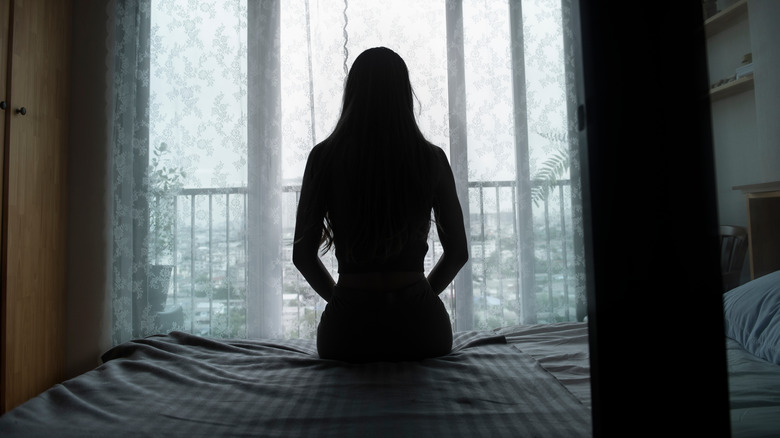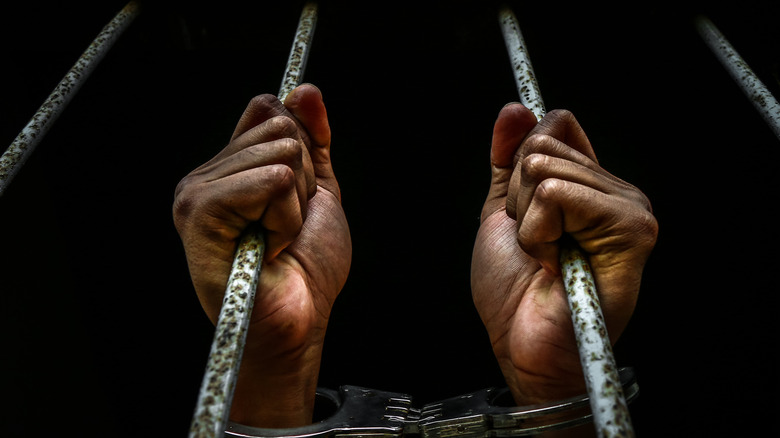Teresita Basa: The Woman Who Identified Her Killer From Beyond The Grave
Investigators working on solving a murder examine the crime scene thoroughly to search for clues about the perpetrator. Photos are taken, pieces of evidence are collected, and a survey of the location is done. They also interview possible witnesses and relatives and friends of the deceased to get some insights about who could have done the crime. However, there are cases when investigators don't get the information they need to solve the crime and the case goes cold. In these instances, it sometimes takes decades to solve the crime, and unfortunately for some, the cold cases don't get solved at all.
In the murder of a woman named Teresita Basa, authorities didn't have enough evidence to solve the crime, but it seemed that Basa herself was intent on getting justice from beyond the grave. The circumstances that surrounded the solving of her crime were unusual, but in the end, her murderer was caught.
Teresita Basa's background
Teresita Basa emigrated to the U.S. from the Philippines in the 1960s to study music. However, as the settled in the new country, she gained a new interest and studied the human body instead. She eventually found work as a respiratory therapist at the Edgewater Hospital near Chicago. By the late 1970s, Basa juggled her work and studies, as she also pursued a master's degree in music. According to ATI, colleagues and friends described her as an intelligent but quiet woman who had a laid-back lifestyle. When not working or studying, she spent her days teaching neighborhood children how to play the piano.
On February 21, 1977, Basa went to work at the hospital as usual and left for home at about 5:30 p.m. About three hours later, her neighbors smelled smoke but didn't know its source. Firefighters were called to the location, and it was discovered that the fire originated from Basa's apartment. According to Medium, firefighters were able to put out the fire, and the source was discovered to be a pile of clothes on the floor. They also found Basa deceased. However, it seemed that the fire was only ignited to cover up her actual cause of death.
The crime scene and initial investigation
The firefighters discovered Teresita Basa's naked body hidden underneath a mattress. She had multiple stab wounds and a knife was still embedded in her chest when she was found, per Paranorms. Authorities were quickly called to the scene, and they surmised that the murderer set fire to Basa's apartment in order to eliminate clues and evidence he may have left behind. Her nude body suggested that she was sexually assaulted, but her autopsy results showed the contrary. Investigators were left with little to go on, as most of the items in the apartment burned in the fire.
Basa didn't have known enemies and didn't live a high-risk lifestyle. One of her friends, Ruth Loeb, had been on the phone with Basa that afternoon for about 30 minutes, but they cut the call short, as Basa said she was expecting a visit from someone. However, she didn't disclose the identity of the person she was expecting, as reported by ATI. The only other clue the investigators found was a note that read, "Get theater tickets for A.S."
A message from Teresita Basa
Investigators worked hard to solve the case, but they got nowhere. Friends of the 48-year-old woman had no idea who would have wanted her dead. Her neighbors didn't notice anything unusual on that fateful night either. By April 1977, investigators were at a dead end, and Teresita Basa's case went cold. In August, however, Joseph Stachula, who was assigned to Basa's case, received information from police in the suburb of Evanston about a man named Allan Showery, who was employed at Edgewater Hospital, as reported by The Boston Globe. The man had the same initials as the note found in Basa's apartment, and he worked at the same hospital as the victim. How Evanston police got wind of Showery was unusual, and Stachula was asked to contact Dr. Jose Chua, who provided the information.
Dr. Chua and his wife, Remibias or Remy, also emigrated to the U.S. from the Philippines, and they lived in Evanston. According to Stachula, the couple was hesitant to talk to him, as they feared authorities wouldn't believe their story. After a bit of prodding from Stachula, Dr. Chua told his story. According to his account, one day his wife suddenly got up from their living room and walked into their bedroom. He followed her and found her lying on the bed in a trance-like state. When he questioned his wife about what was going on, he was surprised to hear her talking in a different voice in their native language of Tagalog. In an attempt to see if she was lucid, he asked her name, and she replied, "Ako Teresita Basa," which translates to "I am Teresita Basa."
The murdered woman visited the couple a few times
Dr. Jose Chua said that he didn't know Teresita Basa and wasn't aware of her murder. He continued talking to his wife Remy, who didn't appear to be herself. After identifying herself as Teresita Basa, she said that she had been murdered by a man named Allan Showery (via The Boston Globe). She went on to say that she let Showery in her apartment because they were friends, but he stabbed her. After the trance, Dr. Chua's wife returned to normal, and they talked about the bizarre incident. Remy said that she had met Basa once during an orientation at the hospital where they both worked, but they never developed a friendship, as they worked different hours. The couple decided to keep the incident to themselves, as they figured no one would believe what transpired, and they didn't want to appear foolish.
However, Basa was insistent. As reported by ATI, a second incident occurred and once again, Basa pleaded to the doctor for help through his wife. She also stated that investigators would need evidence in order to convict her murderer and told him that Showery stole a pearl ring from her. That information was unknown to the police. Basa visited the couple a third time, and that was when they decided to tell the police their story.
Allan Showery confessed to the crime
As an investigator, Joseph Stachula worked with facts and information that can be backed by scientific evidence, but following Dr. Jose Chua's story was the only lead they had in the crime. He tracked down Showery and asked him about Teresita Basa, and although Showery admitted to knowing her, he denied going to her apartment the night she died. Later, he changed his statement and said that he went to her place to fix her television, as reported by The Boston Globe. While visiting Showery, investigators noticed that the woman he lived with, Yanka Kamluk, was wearing a ring that looked like the stolen jewelry Dr. Chua described. When questioned, Kamluk said Showery gifted her the ring sometime in February as a late Christmas present. Basa's family confirmed that it was the same ring she owned.
With pieces of evidence piling up against him, Showery confessed to the murder. According to Medium, he went to Basa's apartment to rob her, but it took a turn for the worse, and he ended up stabbing her. He removed her clothes to make it look like sexual assault had taken place and set fire to the apartment to get rid of any traces of evidence. Showery eventually pleaded guilty and was sentenced to 14 years in prison, but was released on parole just four years into his sentence. Investigators looked into the Chuas as well, but they were satisfied that they had nothing to do with the crime. As for how they got the information, Stachula told The Boston Globe, "I'm not quite sure whether I believe how the information was obtained. Nonetheless, everything here is completely true."





